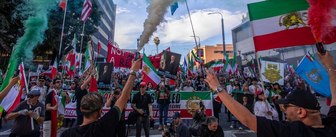As air travel nears pre-pandemic levels, many Americans will spend at least a part of their holiday waiting in line at airport security. Since the Sept. 11, 2001 terrorist attacks, security protocols have expanded dramatically, costing passengers both time and money. A recent YouGov poll finds that over half of people who have gone through security in the past five years say the experience is somewhat (41%) or very (18%) inconvenient. Nearly half (45%) of domestic passengers now say they arrive at the airport at least 90 minutes before a scheduled departure time, similar to the percent from two years ago.
Despite the inconvenience, 79% of Americans say that airports should prioritize screening for security threats over saving travelers time and money.
While Americans remain confident in most of the steps being taken by airport security, prior real-world experiments have revealed major flaws. Homeland Security conducted an investigation in 2015 which found that undercover investigators were able to successfully smuggle mock explosives and banned weapons through Transportation Security Administration checkpoints in 95% of trials.
In stark contrast to these findings, only 12% of Americans say that it is not very or not at all likely that a person attempting to smuggle a weapon onto a plane would be stopped by airport security. More than three in four Americans say it is very (37%) or somewhat (40%) likely that airport security would stop the person.
There is some variation in regard to how Americans evaluate the effectiveness of different security measures. The steps viewed as least effective include requiring passengers to take off their shoes, banning liquids above a certain size, and asking passengers to remove their laptops from their bags during security screenings. Bomb-sniffing dogs, X-ray scanners for carry-on bags, and body scanners are seen as the most effective measures. Overall, though, each of the six measures polled was rated as at least somewhat effective by two-thirds of people.
Travelers frustrated by security burdens can pay for membership in a handful of government-approved programs designed to expedite the security process. Membership in programs such as TSA PreCheck, Global Entry, and CLEAR ranges from $70 to $179. YouGov finds that members tend to come from higher income households who can afford to skip the line. Almost a third of Americans in households earning $100,000 or more participate in at least one of the three aforementioned programs, compared to only 9% of those from households earning under $50,000.
The fact that Americans who are well off can afford to effectively bypass lines raises broader questions about the fairness of airport services that are available for purchase. Less than a third of people (31%) approve of paid programs that allow for expedited security screening and less than half (40%) say that such programs are fair. Under half of Americans say it is fair that people can pay for additional conveniences including skipping the checkout line and sitting in an exit row. Other conveniences, such as sitting in first class, accessing private airport lounges, and paying to board early are thought of as fair by the majority of people.
See the toplines and crosstabs from this U.S. News Poll
Methodology: The U.S. News survey was conducted by YouGov using a nationally representative sample of 1,000 U.S. adult citizens interviewed online December 16 - 20, 2021. This sample was weighted according to gender, age, race, and education based on the 2018 American Community Survey, conducted by the U.S. Census Bureau, as well as 2016 and 2020 Presidential votes (or non-votes). Respondents were selected from YouGov’s opt-in panel to be representative of all U.S. citizens.










